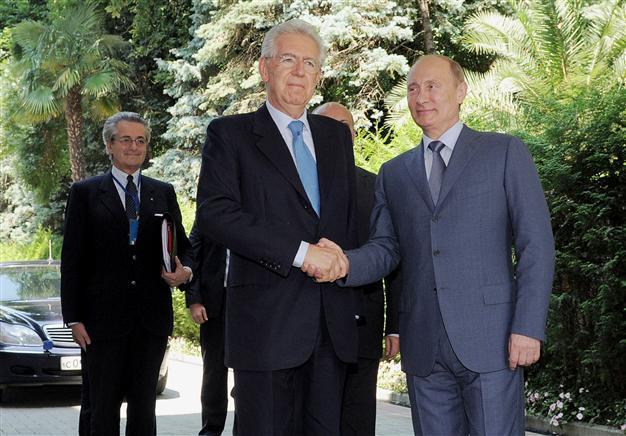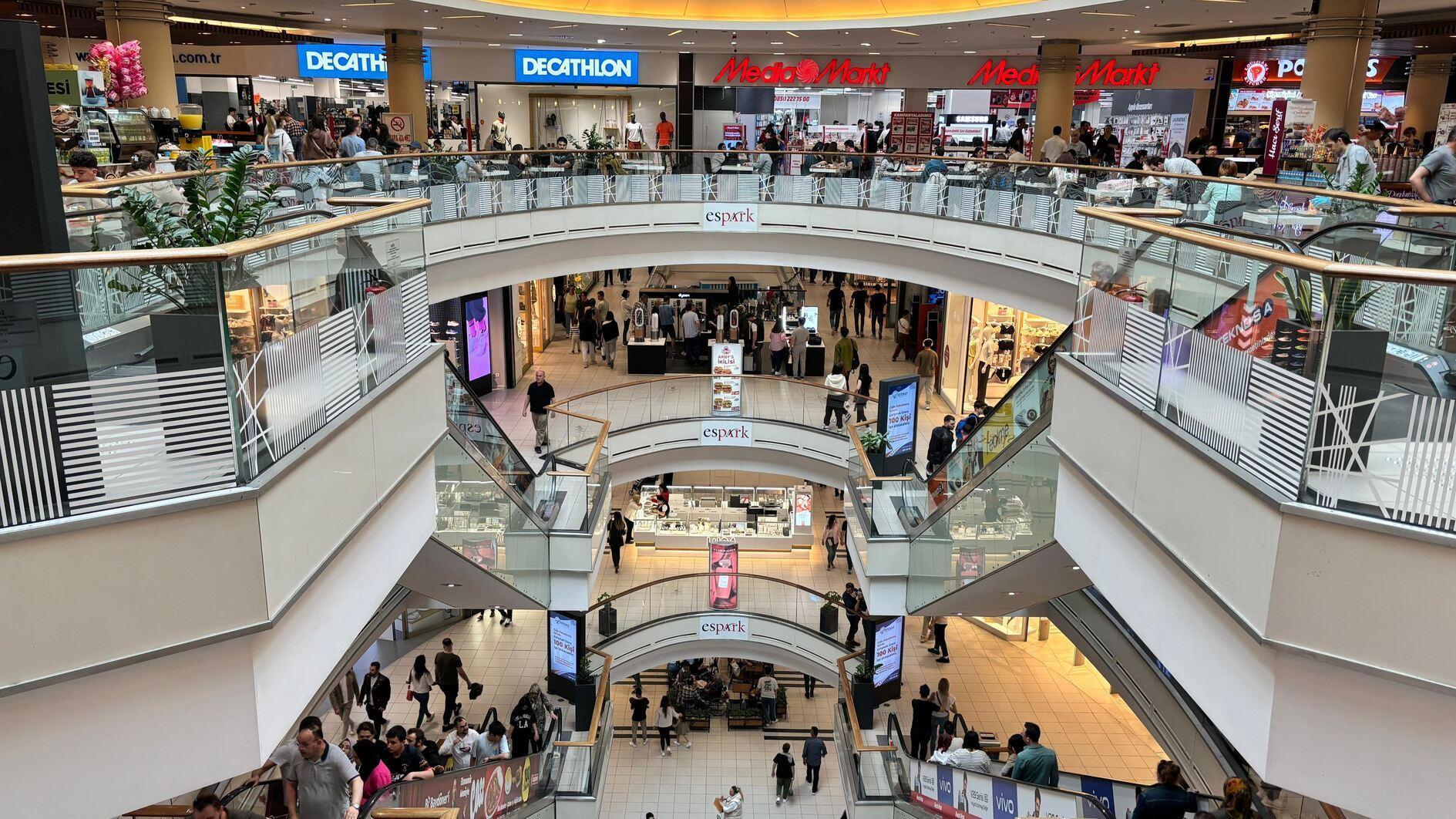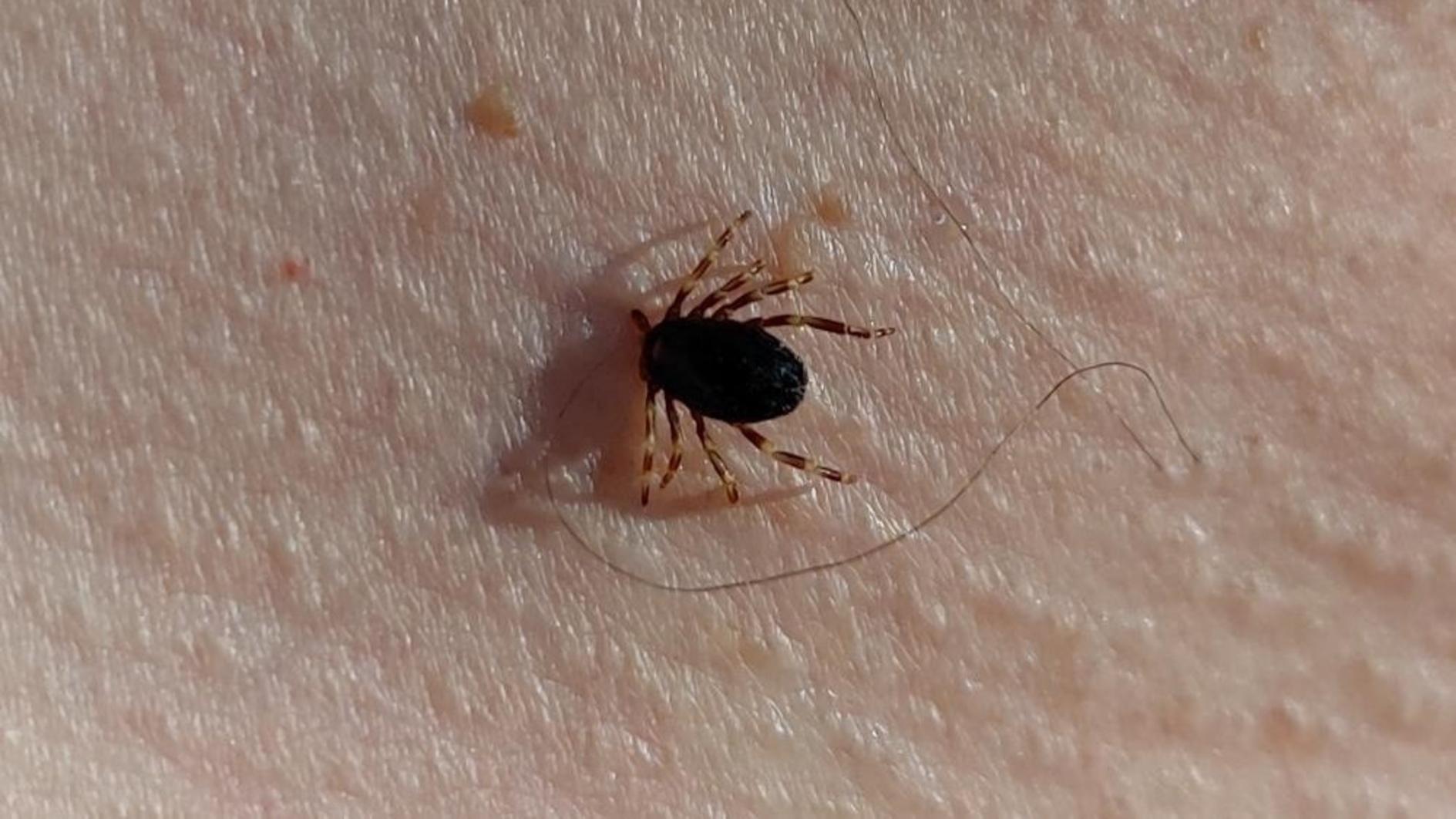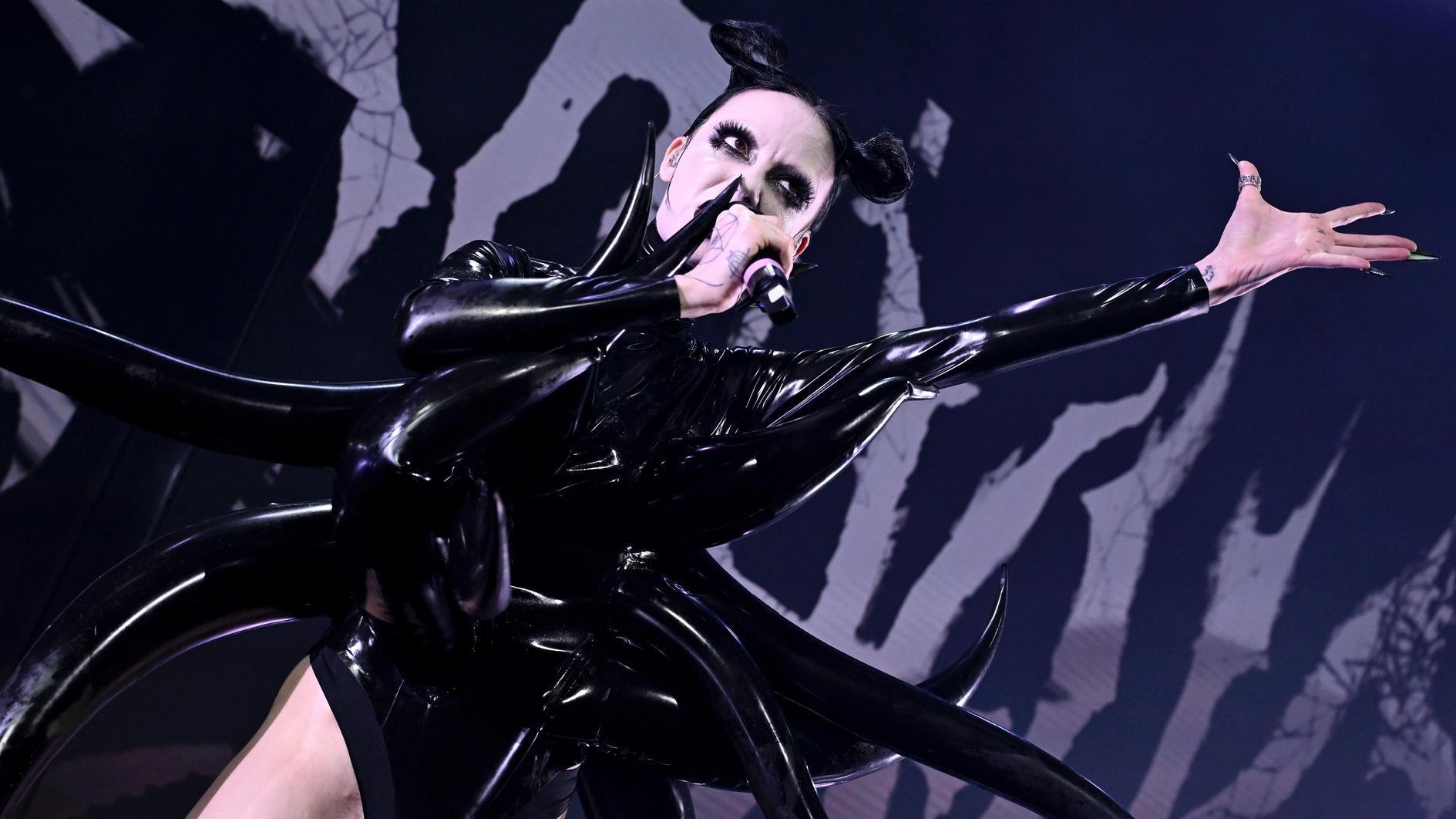Italian PM meets Putin to cement post-Berlusconi ties
MOSCOW - Agence France-Presse

Russian President Vladimir Putin (R) meets Italian Prime Minister Mario Monti (C) in the Bocharov Ruchei residence in Russian Black Sea resort of Sochi on July 23, 2012. AFP photo
Italian Prime Minister Mario Monti on Monday held talks with Russian leaders to cement ties after the departure of President Vladimir Putin's close friend Silvio Berlusconi.Making his first visit to Russia after taking over from Berlusconi, Monti met Putin in Sochi and also oversaw in Moscow the signing of a one billion euro deal for an Italian firm to invest in the North Caucasus.
"It is very good that we are tied to Italy with deep, good relations and they continue irrespective of what changes there are in the outside world," Putin told Monti in comments broadcast on state television.
He expressed satisfaction over trade volumes which grew 25 percent to $45.9 billion in 2011, saying that at this rate trade would soon reach the levels seen before the financial crisis.
Russia, which enjoys closer ties with Rome than any other major EU state, is engaged in a range of joint projects with Italy including the South Stream gas pipeline and the Superjet short-haul passenger planes.
Monti's high-profile visit to Russia is aimed at keeping up the strong alliance between Moscow and Rome after the departure from power of Berlusconi, a personal friend of Putin.
"Monti's visit should show that Russian and Italian relations are dynamic even without Silvio Berlusconi," a foreign ministry source told the Vedomosti daily.
Putin and Berlusconi made no effort to hide that their friendship went well beyond diplomacy, attending each other's birthday parties and making regular shared displays of public machismo.
Even after falling from power in November 2011, Berlusconi has been a regular visitor to Russia, meeting Putin at a ski resort in March after his presidential election victory and also attending his inauguration in May.
In a sign of the enduring strength of the relationship, Russia and a top Italian construction firm signed a deal worth 1.0 billion euros ($1.2 billion) to build infrastructure for developing tourism in the violence-plagued North Caucasus.
"Rizzani de Eccher plans to form a consortium of investment, credit, and import firms and other organisations as well as construction and developer companies," the Russian North Caucasus Resorts group said in a statement.
The deal was signed by the main shareholder of the Italian firm, Claudio de Eccher and the chairman of North Caucasus Resorts Akhmed Bilalov in Moscow.
Developing tourism in the North Caucasus is a key strategic priority for Russia to bring stability to a region with huge potential but which has been scarred by a years-long Islamist insurgency fuelled by high unemployment.
Rizzani de Eccher will be taking part in the Russian plan to develop "world class" ski resorts in the region around Mount Elbrus, Mamison in North Ossetia, Matlas in Dagestan and Tsori and Armkhi in Ingushetia.
The Russian foreign ministry source told Vedomosti that participation in the Caucasus project -- strongly endorsed by both Putin and Prime Minister Dmitry Medvedev -- is seen as a symbol of close ties with Russia.
Eccher is considered as being close to Berlusconi in Italy, the source noted.
Caisse de Depots of France -- another EU state that enjoys relatively warm ties with Putin's Russia -- has also promised to attract one billion euros in investment for the Caucasus. Russia additionally wants to develop beach resorts along the Caspian Sea in Dagestan, a region that sees almost daily clashes between insurgents and the security forces.
The ambitious plan sees the creation of 1,100 kilometres (680 miles) of ski runs, 102,500 beds and a capacity to receive 172,000 people on a daily basis.
The overall cost of the hugely-ambitious alpine project is estimated at 450 billion rubles (11.4 billion euros/$14 billion).
















